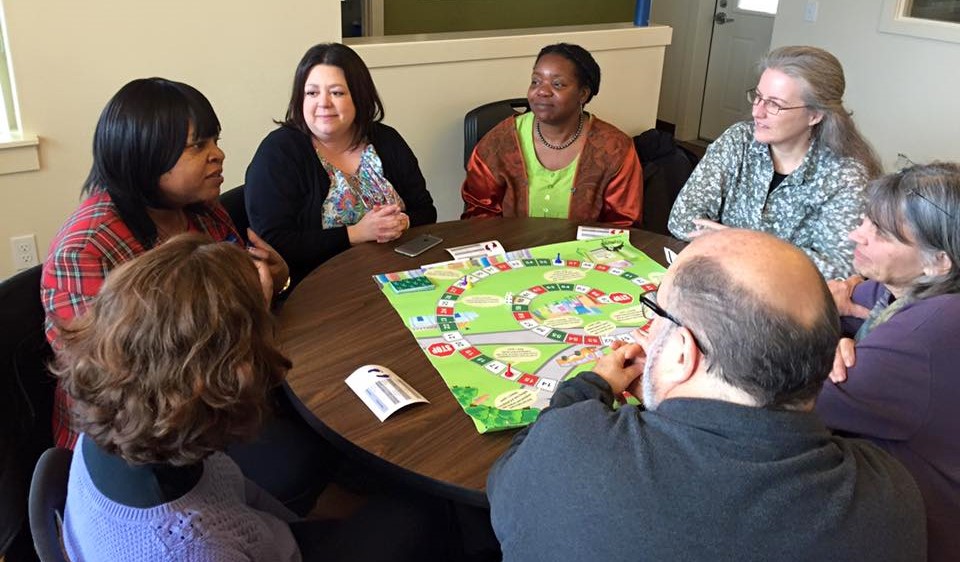Financial Education Crucial to Stability for Oregon Families

Oregon's moderate and low-income families experience significant challenges to reaching financial stability. In fact, Oregon ranks 47th in the nation in housing affordability with 32% of homeowners and 51% of renters paying over 30% of their monthly incomes toward housing. One key factor in reaching financial stability is improving access to financial education and knowledge building. In this economic environment, access to financial education, individualized coaching, and financial tools to help households boost savings are critical.
Stagnating incomes and rapidly rising housing costs in the region contribute to the overall lack of financial stability in our local communities, and create limited opportunities for low-income families to improve their financial standing and build long-standing assets. Lower income families are less likely to see future wage growth in keeping with inflation. Oregon’s average poverty level of 13% is higher than the national average of 12.7% (Census, 2017). High poverty holds back communities in many ways. First, a large number of people in the community are disenfranchised from the mainstream due to their financial instability. The culture of poverty that develops in communities with few financial or socio-economic resources continues to keep families in a cycle of financial instability and poor outcomes for generations, including lower educational attainment, worse health outcomes, and poorer earning potential.
The ALICE (Asset Limited, Income Constrained, Employed) measurement – a measure of the income required to support a small working family with basic needs (housing, utilities, child care, food, healthcare) – is a compelling measure of financial stability. Oregon’s ALICE report shares the reality of thousands of Oregonian’s who earn above the Federal Poverty Level, but whose income is not enough to afford bare-bones household needs. According to the 2018 ALICE study, the statewide average household survival budget for a family consisting of 2 adults, 1 infant, and 1 pre-schooler is $62,796. Oregon’s current housing crisis is affecting households across the state, in metropolitan and rural areas, and impacting their ability to access safe and affordable capital. According to the 2018 Out of Reach Report published by the National Low-Income Housing Coalition, Oregon has the 17th highest housing wage in the nation with a minimum wage worker needing to work 79 hours per week to afford a 2-bedroom apartment (state average). That’s two full-time jobs! The challenge of rent affordability is highlighted when considering additional costs or time pressures such as childcare, caring for an aging parent, health care costs, emergency needs, etc.
These factors can create barriers to financial wellness and make families feel that they are in a permanent state of financial instability. At DevNW, the primary aim of our financial capability suite of services is to help low- and moderate-income individuals and families reach their financial goals, whether it be saving for a car or for a financial emergency. We offer a variety of personal finance classes on everything from money management to credit repair. For information on how DevNW can help you, or someone you know, get on a path to financial stability, visit: https://devnw.org/financial-wellbeing/
For more information on the ALICE Report, visit: https://www.unitedforalice.org/home